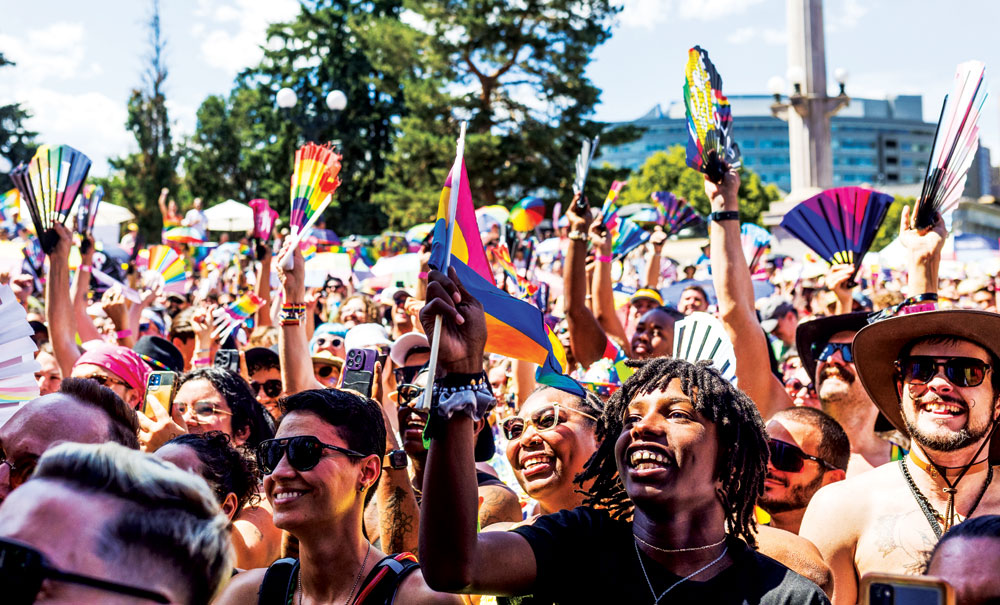
June is a month filled with events for the LGBTQ+ community in Denver. Those events have lost some funding this year as supporters react to changes in the economy and the political climate. Organizers are committed to moving forward and finding new ways to engage donors. Photo by Tyi Reddick / courtesy of The Center on Colfax
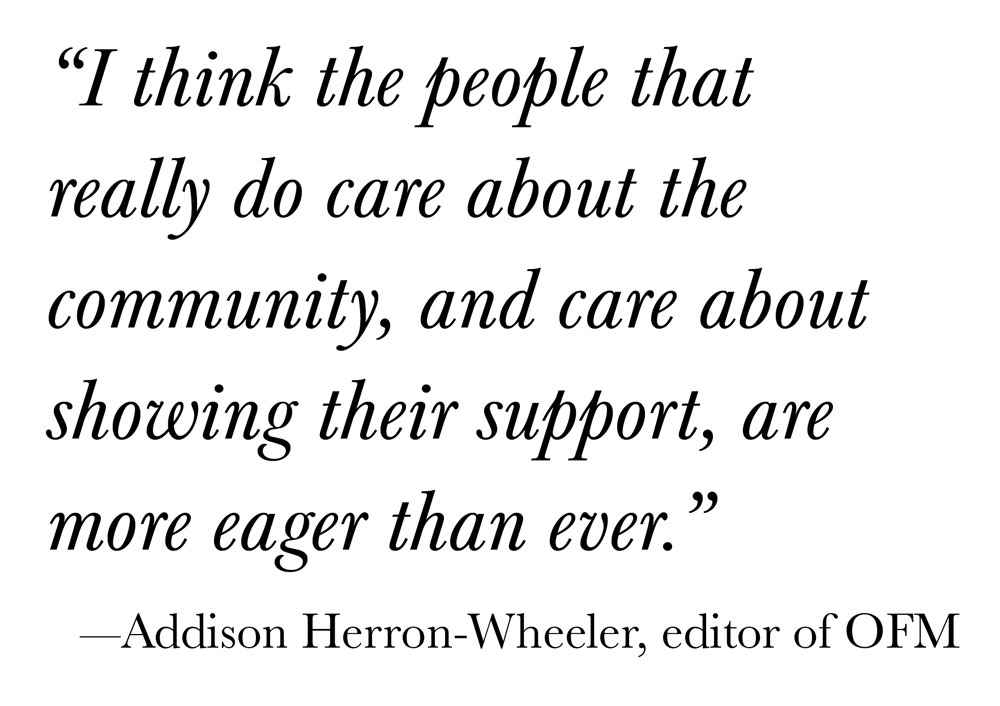 During June, rainbow flags fly with pride in celebration of the LGBTQ+ community. Denver Pride is the largest organized local event of Pride Month, with more than 500,000 people expected to converge in Civic Center Park on the weekend of June 28 and 29. The event costs a lot of money to organize and stage.
During June, rainbow flags fly with pride in celebration of the LGBTQ+ community. Denver Pride is the largest organized local event of Pride Month, with more than 500,000 people expected to converge in Civic Center Park on the weekend of June 28 and 29. The event costs a lot of money to organize and stage.
This year, The Center on Colfax, which produces Denver Pride, saw some sponsors of the event leave, as economic concerns and rollbacks in Diversity, Equity, and Inclusion efforts escalated. In April, leaders projected a $230,000 decrease in event sponsorship funding from previous years.
“Denver Pride is unique from other pride events of our size in that it is both entirely free to attend and serves as the biggest annual fundraiser for our local LGBTQ+ community center, The Center on Colfax,” says Natalie Zanoni, then-interim CEO of The Center.
“Eighty-three percent of all contributions to The Center are directed back to our community through the vital programming we offer year-round to our LGBTQ+ community free of charge,” Zanoni says. “The decrease in funding we are experiencing puts these critical services at risk, such as mental health support, programming for our trans and gender diverse community, youth, older adults, and more.”
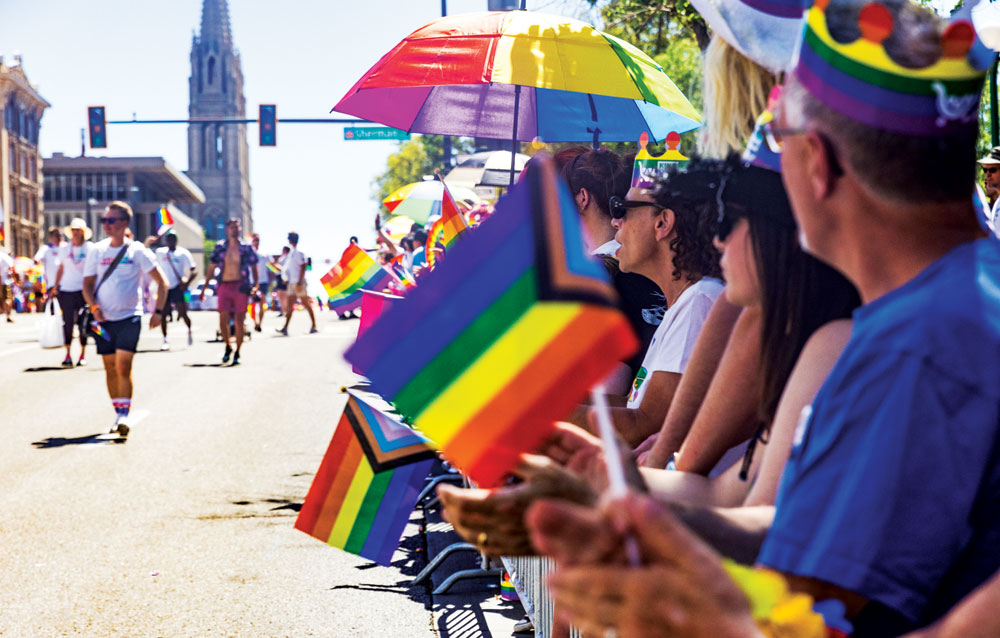
Denver Pride is June 28 and 29 in Civic Center Park. The event is the largest in the metro area. The parade’s route is changed this year due to construction on Colfax Ave. Go to denverpride.org for details. Photo by Tyi Reddick / courtesy of The Center on Colfax
The Center isn’t identifying organizations that have discontinued support, saying in an emailed statement that the goal of the organization is to educate people about the work and it recognizes that decisions “do not reflect the views and opinions of everyone within the organizations in question.”
Some of the gap has been made up by new sponsors and community members willing to help. Donations are still needed for the event, organizers say.
The team at Out Front Magazine (OFM) sees the Denver event as its biggest opportunity of the year to get in front of a large crowd. OFM will be handing out 10,000 multi-colored Pride bags decorated with logos of sponsors.
A New Site for Aurora Pride
The Out Front Foundation also produces Aurora Pride, which will be held in August. The event is moving from the Aurora Reservoir to Fletcher Plaza on East Colfax Ave. due, in part, to funding changes from the city, which organizers say left them scrambling to raise money.
“We aren’t quite getting the funding from the Aurora City Council that we were getting. I know some of that is just budget cuts and funding issues all around. Some of it is because I believe there are some more conservative folks on the council who don’t necessarily want to give a lot of funding to Pride,” says Addison Herron-Wheeler, editor of OFM and co-producer of Aurora Pride.
She adds that it costs $30,000 to $35,000 to have the event at the reservoir, which was the amount of funding previously received from the city. Last year, she said they received only $7,500, so they needed to quickly raise money, and the loss of funding also had an impact on a scholarship program.
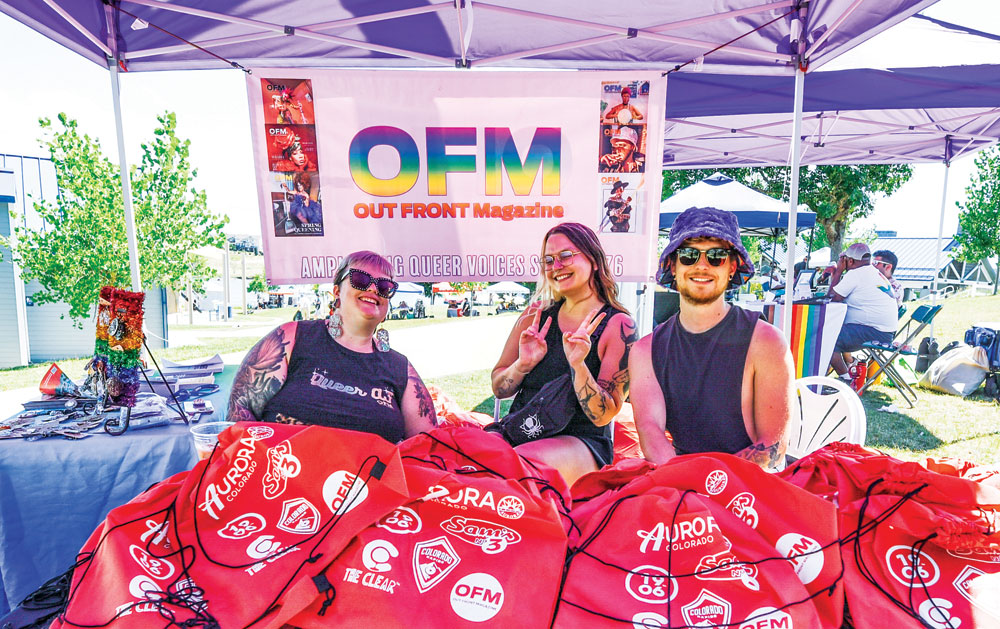
The team from Out Front Magazine at Aurora Pride. The event is moving from its previous home at the Aurora Reservoir to Fletcher Plaza on East Colfax Ave. The move was needed after a cut in city funding. Photo courtesy of Veronica L. Holyfield
Herron-Wheeler says the move to Colfax Ave. does support the original intention of the event to be a free, inclusive, and accessible block party near transportation or by foot. The event at the new site will also include performances at nearby venues, services, and food.
Herron-Wheeler is optimistic about the changes and the support from donors, some of whom still give, just at a lower level. She adds: “I think the people that really do care about the community, and care about showing their support, are more eager than ever.”
Aurora Pride hopes for a crowd of 10,000 this year. Herron-Wheeler says it’s important to support people in the city, especially now with the anti-immigrant “Project Aurora rhetoric coming from the Trump administration and Aurora being seen in this nationally negative light.”
She says they want to change the rhetoric and focus on the cultural diversity of Aurora, alongside the LGBTQ+ community. “We’re hoping to get more people of color, more immigrants, families, women, trans people, folks who traditionally have not been as accepted as at Pride. I want all those people to feel like this is their space.”
The event will include private security, an events team checking people who come in, and volunteer groups like the Parasol Patrol.
Black Pride Makes Plans
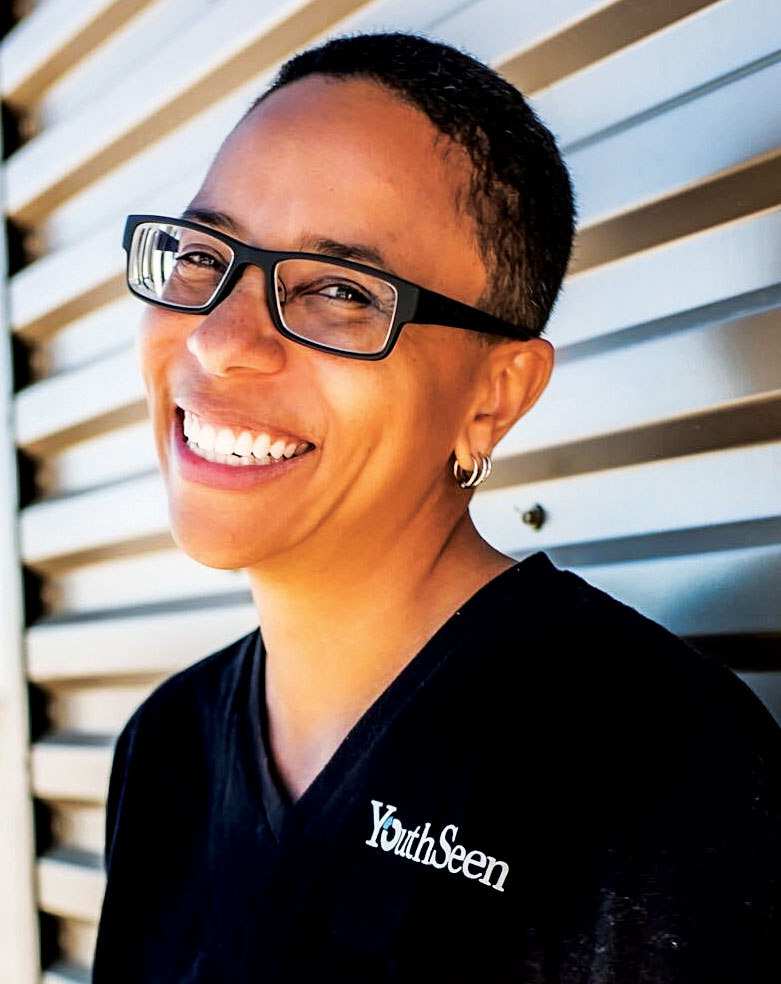
Tara Jae, Ph.D. Photo courtesy of Youth Seen
“Fear is contagious,” says Tara Jae, Ph.D., director of the non-profit group Youth Seen and co-founder of Black Pride. “In order for us all to be free, we need to look at those who are most marginalized. It is Black queer communities, and that is not to take away from our brown folks who have immigrated here. We need to look at our trans folks of color and we do need to prioritize Black queer lives.”
Black Pride Colorado began in 2021 and has worked with limited funding of just $100,000 over five years. Events are held in Denver in June including a gala, which is the main fundraiser. It’s about money and awareness.
“Even with the fundraiser, we’re having difficulty with people seeing the importance of what Black Pride is,” Jae says. “I keep saying to people, Juneteenth was about our freedom, but Black Pride is about our liberation. Because even within our own community, we’re still having difficulties of understanding what it means to support queer folks in the community.”
Jae says that aside from the gala, Black Pride relies on foundation money, which has been slow in coming in 2025, held up by continued requests for information and data. Every bit of public funding helps.
“If you’ve got some spare change, or whatever giving you can do, Black Pride could always use it.”
Pride started in 1969 following a raid at the Stonewall Inn bar in New York City. It began as a resistance against police that was led by transgender women of color—Marsha P. Johnson, Miss Major, and Sylvia Rivera.
“There is main Pride, and then there’s Black Pride,” Jae says. “We also still need to talk about the difficulties and racism that still happens within our queer community. And it’s not just racism, there’s still transphobia in our community, and there’s still a level of education that needs to happen. With Black Pride, it’s being able to show up in our spaces authentically and to be seen, because anti-blackness is so strong.”
Jae says that funding is needed for organizations that continue to do grassroots work in the community. That work goes on all year, Jae adds.
“June is great. Outside of June, you all forget about us. We have the attention now. We’re the news. It’s the other times of the year too.”
The Center on Colfax www.lgbtqcolorado.org
Aurora Pride www.aurorapride.com
Black Pride www.blackpridedenver.com


0 Comments